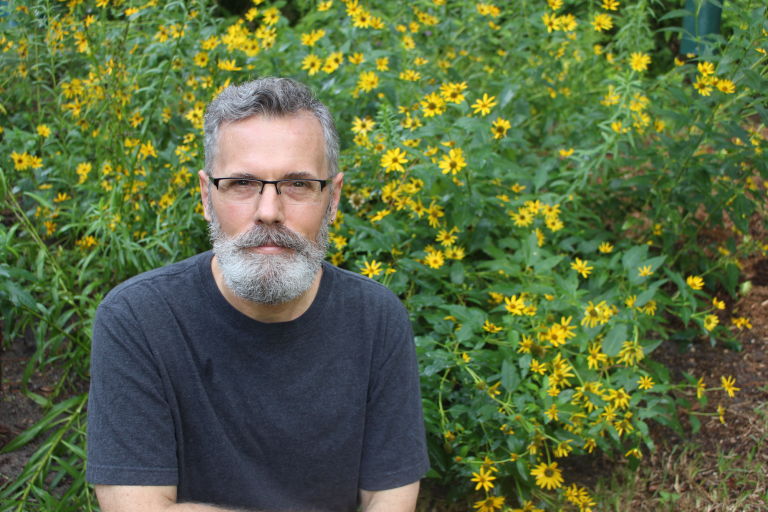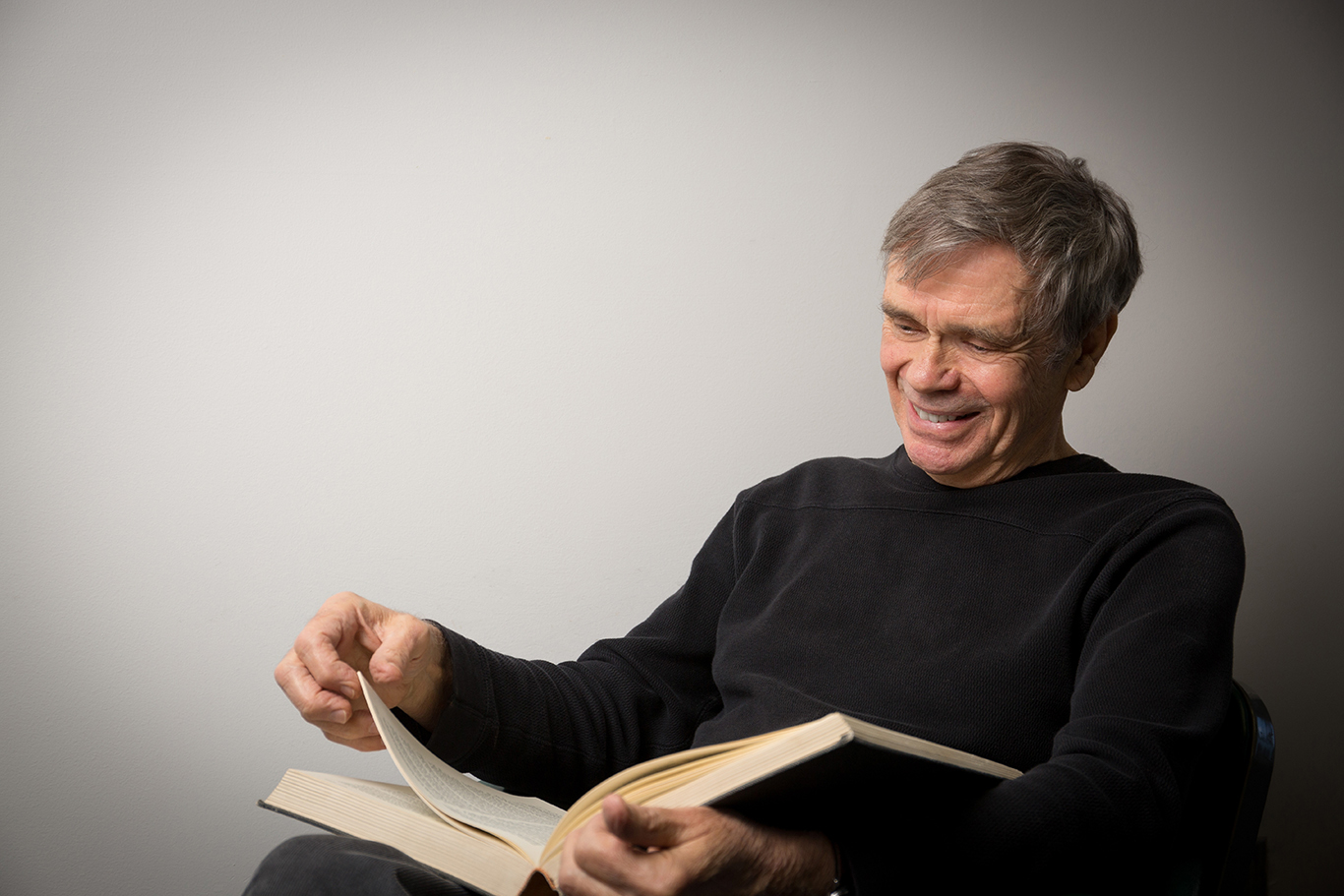Reaching out to the community is a tradition at the University of Florida, which is a land-grant institution. Serving our neighbors is central to our goal of being an excellent university.
“The public mission is a school’s conscience, a set of ideals, strategies, and programs going way beyond affordable tuition and quality education — it’s the way college interacts with its neighbors, the way it contributes to building a vibrant and a just democracy.”
– Princeton Review
UF’s outreach actively addresses needs, issues and concerns. These efforts ultimately sustain a better quality of life for our communities.
Something missing on this page? Contact us.
Expand All
Astronomy
The Department of Astronomy is committed to astronomy education in our schools and community. Many of our faculty regularly visit schools, present public talks, and work with local educators to make sure the excitement of astronomy is conveyed to school-age students as well as the general public. Among our various activities:
- Annual astronomy event at the Florida Museum of Natural History called “Starry Night,” which generally attracts thousands of people from around the state
- Annual workshops for teachers through Florida to train them in astronomy/science education
- Visits to classrooms throughout Alachua and surrounding counties to present astronomy lessons using our portable Starlab planetarium and AstroWall 3-D visualization tools
- Public observing nights every Friday at the Campus Teaching Observatory here on the UF campus and elsewhere
- Astronomy public lectures several times each semester
If you are interested in hearing more about these activities or scheduling a visit to your school, contact:
Vicki Sarajedini
Associate Professor
218 Bryant Space Science Center
Phone: 352-392-2052 (237)
vicki@astro.ufl.edu
Center for African Studies
Teachers Institute
The continent of Africa is one of the least taught of the world’s geographical areas. Its teaching is blurred by stereotypical images. The Center offers workshops for K-12 teachers, which explore African diversity, how to teach about Africa, ways of integrating Africa into the curricula, how to evaluate materials on Africa, recommendation of appropriate audiovisual materials and special topics. The lesson plans and essays produced by teachers in the institute are collected in the research journal Irohin.
High School Programs
Jambo! and the Summer Language Institute teach high schoolers an African language. Students gain basic proficiency in the language and learn about African culture and current events.
Agnes Ngoma Leslie, Outreach Director, conducts a program at Eastside High School in Gainesville. Most recently, she led a Black Panther-themed camp in which students visited the African art exhibit at the Harn Museum of Art, learned and performed African music, and discussed the fictional realm of Wakanda in context of current African issues.
Center for European Studies
Community Outreach Initiatives
K-12 School Programs
- Workshops for K-12 teachers: workshops are designed to give teachers the background information they need to bring European topics to their classrooms. We often use faculty and scholars from other units and colleges to provide a well-rounded examination of the topic. Past workshops include: Traditional roots of modern European music; Creativity as survival: Artistic expression of the Holocaust; European prints and life.
- K-12 classroom presentations: CES and affiliated faculty, students, and staff visit classrooms with a personalized presentation on culture and customs of various European countries
- Institute of Learning in Retirement: talks to the large and well-organized retired learners group. Recent topics have been: Everything you always wanted to know about the EU; Exploring the ‘Other’ Europe: European Identity in Transition.
- Special events: such as The World of Words language open house, where we have fun giving 5-minute language lessons and teaching facts about Europe, its languages, and geography
- Jean Monnet Centre of Excellence scholar program: bringing European Union scholars to UF for academic lectures, special courses, and public talks
- Speaker series: talks open to both the academic community and the general public by CES faculty and co-sponsored scholars from other institutions
Statewide Initiatives
- Language Teacher Summer Institute:a two-week interactive pedagogy workshop for foreign language teachers emphasizing technology use in the classroom
- The Florida Economic Research Network (F.E.R.N.): The CES contributions to F.E.R.N. focus on the role of European businesses and foreign direct investment for job creation and economic prosperity in Florida.
For more information, call 352-392-8902.
Center for Humanities and the Public Sphere
Highlights of CHPS Outreach Efforts:
- Public Humanities encompass a range of activities from public scholarship and interdisciplinary collaboration to civic engagement and service-learning.
- UF Intersections, funded by The Andrew W. Mellon Foundation, brings students and faculty together across disciples to address grand challenge questions in their courses.
- Conversations in the Neighborhood is a Public Humanities Speaker Series. The 2020-2021 series invited community members to engage with new or familiar food in a space where food is revealed to drive social development. The 2021-2022 series will be focused on music.
Programs in the Public Humanities
The Center for the Humanities and the Public Sphere offers a grant program entitled Programs in the Public Humanities.
This grant program is designed to encourage and enhance collaborations between UF and off-campus individuals, groups and organizations by supporting public programs rooted in at least one humanities discipline. These programs will draw on the humanities expertise of both UF and community partners as co-applicants. To learn more and apply for the grant program, visit here.
Learn More
Please feel free to visit the CHPS calendar, which includes upcoming public humanities events. You can also sign up as a community member to receive weekly email updates about CHPS programming and events.
Center for Jewish Studies
Center for Precollegiate Education and Training (CPET)
English
Geological Sciences
- Visits to K-12 classrooms
- K-12 teacher training and professional development
- Development of curricular materials for K-12 and undergraduate education
- Public geoscience educational events
- Participation in committees and boards regarding education and other public policy interests
- Contribution to publicly accessible scientific databases
GeoGators Classroom Visits
GeoGators is a volunteer outreach program to fulfill local area requests for classroom visits by a geoscientist. Geogators volunteers, who include undergraduate students, graduate students, and faculty from the Department of Geological Sciences are coordinated by Professors Matthew Smith and Andrew Zimmerman. Smith and Zimmerman coordinate directly with teachers to align the content and nature of the classroom visit to the desired learning outcomes. Inquiries for GeoGators volunteers should be directed to Smith or Zimmerman or can be coordinated through Pam Fitzgerald at the Alachua County School Volunteers Office.
Curriculum Design and Teacher Professional Development
Professor Matthew Smith has been involved in a wide range of Earth science curriculum development projects, primarily aimed at middle school and high school grade levels.
Geosciences faculty (Matthew Smith, Ray Thomas) have collaborated with local schools as part of a funded Florida math-science partnership grant (entitled Beyond GEMS) to provide content training, inquiry-oriented curricula, online support resources, and professional development to Alachua County middle school and high school science and math faculty. Inquiries regarding teacher professional development can be directed to Professor Smith.
Public Education in the Geosciences: Can You Dig It? Event
Annually, the Department of Geological Sciences, in coordination with the Florida Museum of Natural History, hosts a day of education and fun activities related to the geosciences. It is an event that is fun and interesting for all ages, with interactive activities, displays, and demonstrations ranging from gemcutting to exploding volcanoes. In 2007 and 2008, the first two years of the event, it was sponsored by student government as one of the “Museum Nights” offerings, and we broke attendance records in each case. Inquiries regarding the Can You Dig It? Event can be directed to Matthew Smith.
Additionally, a diverse range of geosciences faculty volunteer to speak at a wide range of different events. Inquiries for public speakers should be directed to the Department of Geological Sciences Office, where office staff can direct the inquiry to the most appropriate faculty member.
Public Policy and Planning
Several faculty members in the Department of Geological Sciences actively contribute to public planning, with interests ranging from water management district and county planning interests to State and National educational policy regarding topics like the role of Intelligent Design in science classrooms (Joseph Meert) and the development of state science education standards and assessments (Ray Thomas). Inquiries should be directed to the Geosciences Department Office, where office staff can direct the inquiry to the most appropriate faculty member.
Research-Related Outreach
UF geosciences faculty coordinate with existing UF outreach programs, like the UF Student Science Training Program (via the UF Center for Pre-collegiate Education and Training), to mentor pre-collegiate students conducting research. Students mentored by geosciences faculty have presented results at national meetings, published findings, and participated in both university-wide and national competitions. Student and mentor achievements have resulted in mentoring awards and recognition at national-level science competitions.
Geography
Faculty Service
Professor Emeritus Nigel Smith serves as a mentor/tutor to kindergarten and first grade students at Terwilleger and Rawlings elementary schools here in Gainesville.
History
The Samuel Proctor Oral History Program has partnered with other academic units and community organizations to document the stories of marginalized groups and social movements, including the Women’s March on Washington, civil rights movement, LGBTQ activism and Pulse survivors, veterans, and inmates.
Psychology
Kate Ratliff, professor of psychology and director of Project Implicit, and her three graduate students use implicit bias assessments to measure psychological attitudes toward various social issues.


